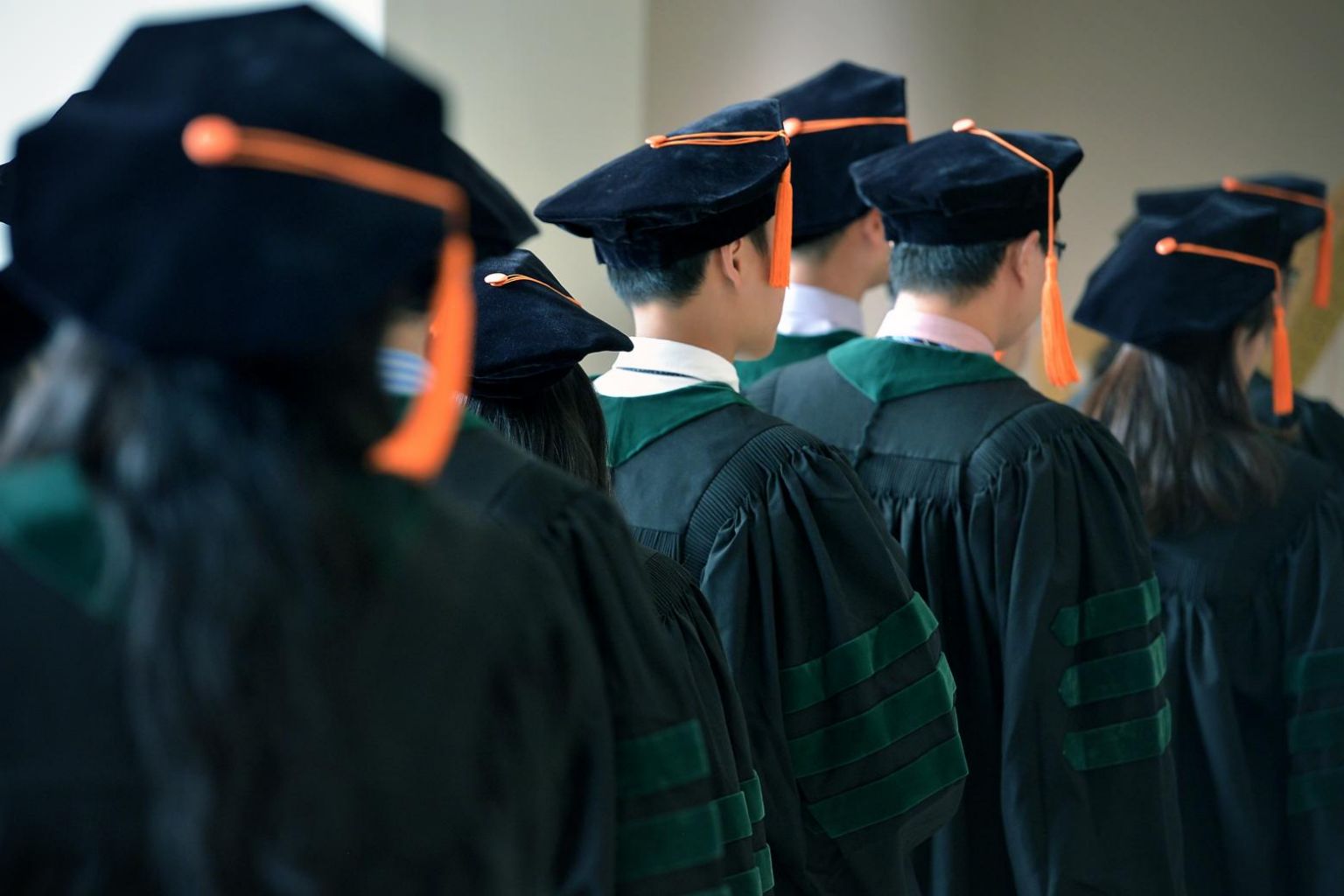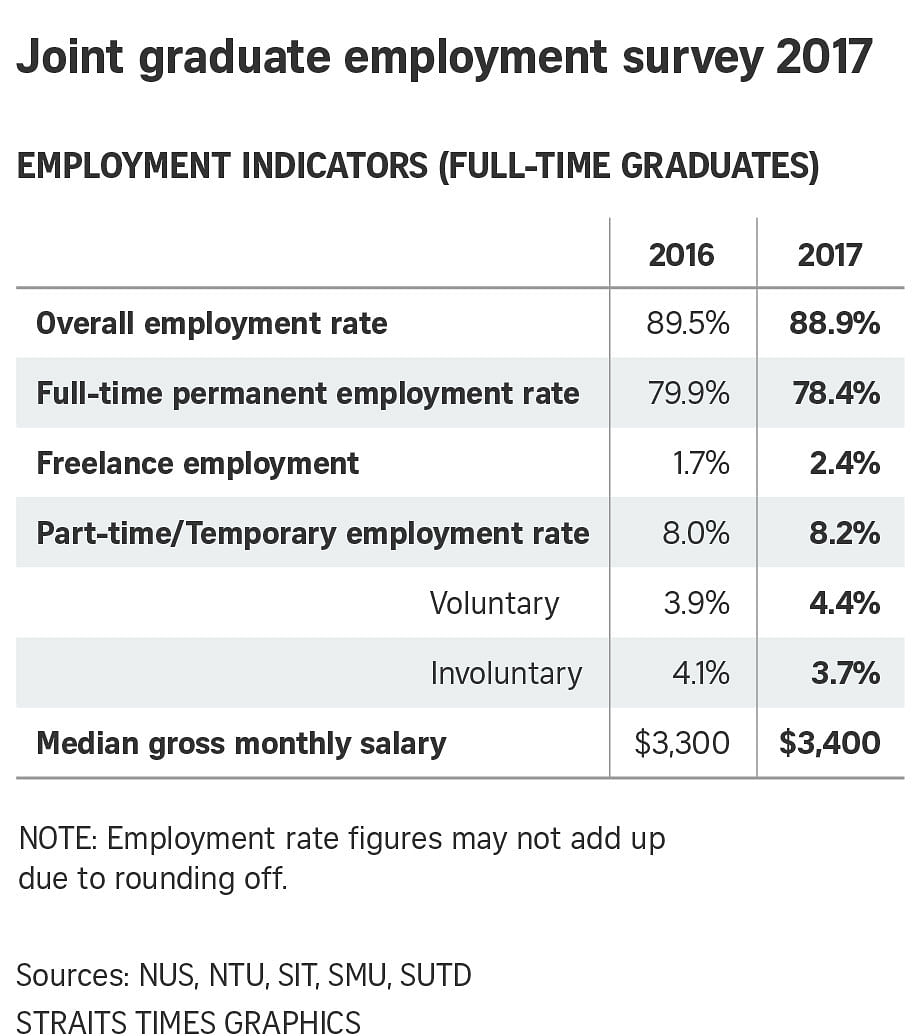Higher starting pay for university graduates, more in freelance work: Survey
Sign up now: Get tips on how to help your child succeed

Nearly nine in 10 graduates, or 88.9 per cent, found jobs within six months of their final examinations, down from 89.5 per cent in 2016.
PHOTO: ST FILE
SINGAPORE - Fresh university graduates earned a higher starting pay last year (2017), with some getting as much as $4,000 to $5,000 in areas of business and computing.
They took home a median monthly salary of $3,400, up from $3,300 in 2016, according to results of a joint graduate employment survey released on Monday (Feb 26).
The starting pay is also the highest since 2012, the first year of the annual survey of graduates from National University of Singapore (NUS), Nanyang Technological University (NTU) and Singapore Management University (SMU).
Fresh graduates with degrees in business, economics and computing saw the biggest pay jumps. For instance, NUS business administration graduates earned $3,500 last year, up from $3,100 in 2016. Those with a double degree in business and computing from NTU earned $5,000, compared to $4,600 in 2016.
The survey also found that nearly nine in 10 graduates, or 88.9 per cent, found jobs within six months of their final examinations, a slight dip from 89.5 per cent in 2016. This refers to the number of graduates in full-time, part-time, temporary or freelance work.
Another 3 per cent of graduates had accepted job offers, but had yet to start work at the time of the survey, compared to 2 per cent the year before.
More went into freelance work - 2.4 per cent compared to 1.7 per cent in 2016. The proportion of graduates in part-time or temporary jobs remained at about 8 per cent.
The survey, which was conducted last November, polled 11,628 fresh graduates of full-time courses from NUS, NTU and SMU.

Human resource experts said the dip in full-time permanent employment rate for fresh graduates is not a cause for concern as they have other priorities besides full-time work.
Mr David Leong, managing director of recruitment firm PeopleWorldwide Consulting, said: "Many will choose either to further their education or go for a long overdue holiday before working."
They also have other options such as freelance work and being an entrepreneur, he said, adding that these give them "better control of time and worklife balance".
Mr Ronald Lee, managing director of Primestaff Management Services, added: "Some graduates are very specific about what they want in full-time jobs. Some of them are more open to venture into small businesses.
"Freelance or contract projects are also well-remunerated; their returns can be higher and faster."
Overall, wages are also moving up because of the tight labour market and a more positive economic outlook in the last one to two years, said HR experts.
According to preliminary figures in January from the Ministry of Manpower, real median incomes for Singaporeans in full-time work rose by 5.3 per cent year-on-year as of June last year. This was higher than the 1.3 per cent growth in the previous year.
"The median pay of $3,400 for fresh graduates will edge up over time and this is unlikely to be a one-off peak," said Mr Leong.
But the proportion of graduates who secured full-time permanent employment fell from 79.9 per cent in 2016 to 78.4 per cent last year.


